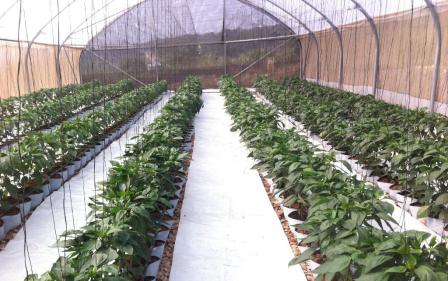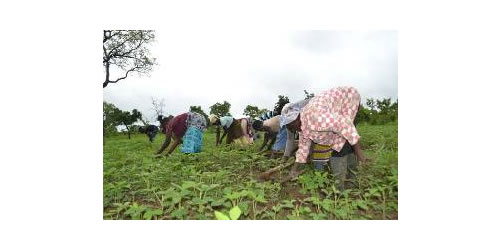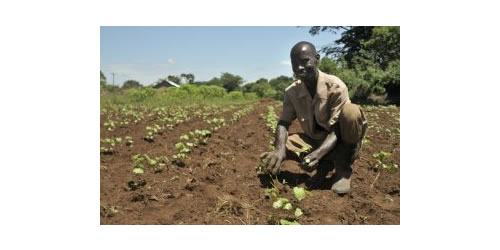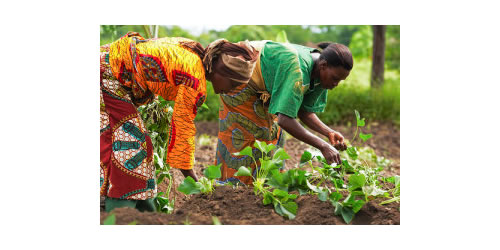USAID Supports Mofa to Implement Medium-Term Agriculture Sector Investment Plan
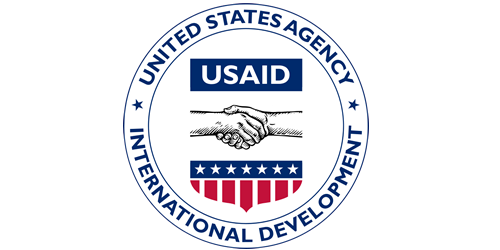
PRESS RELEASE
The Feed the Future Agriculture Policy Support Project (APSP) of the United States Agency for International Development (USAID) Ghana, in collaboration with other development partners, is supporting the policy agenda of the Ministry of Agriculture (MoFA) to implement the Ministry’s Medium-Term Agriculture Sector Investment Plan (METASIP).
MOFA is the lead agency and focal point of the Government of Ghana, responsible for developing and executing policies and strategies for the agriculture sector within the context of a co-ordinated national socio-economic growth and development agenda.
By means of a sector-wide approach, the Ministry’s plans and programmes are developed, coordinated and implemented through policy and strategy frameworks.
METASIP is, therefore, a sector-wide investment plan to implement the Food and Agriculture Sector Development Policy (FASDEP) II–the current policy document for the development of the agricultural sector in Ghana.
The overall goals of METASIP for the medium term of 2011-2015, which includes activities of agriculture-related Ministries, Departments and Agencies (MDAs) in Ghana, are the achievement of at least 6 per cent annual Gross Domestic Product (GDP) growth and 10 per cent government national expenditure allocation; increasing yields by an average of at least 50 per cent by 2015; increasing the productivity of all operators along the value chain; enhancing access to markets; promoting value chain development of selected commodities for food security and growth in incomes.
METASIP comprises 6 programmes corresponding to the 6 policy objectives of FASDEP II–and all 6 programmes are to be implemented in an integrated approach to complement each other, taking into account on-going projects in the sector.
APSP, which is supporting MoFA to implement METASIP, is being funded by USAID at the cost of approximately US $225 Million up to 2017.
The Project is being implemented by Chemonics International Incorporated with Iowa State University (ISU) Centre for Policy Analysis (CEPA) Ghana and the Ghana Institute of Management and Public Administration as its implementing partners, while the Government of Ghana (GoG), public and private academic and research organizations and Civil Society Organizations (CSOs) are its key counterparts.
The five-year Project–December 2013 to September 2018–is expected to strengthen the capacity of policy-makers to identify and implement agriculture policies based on evidence and analysis, strengthen local research capacities to contribute to the policy process and support the efforts of CSOs in their policy advocacy activities.
It is designed to improve the security-enabling environment for private sector investment in agriculture in Ghana by supporting the effective engagement of the public and the private sectors on discussions about the Ghana’s agricultural policy process and, thereby, contribute to USAID’s overall goal of fostering a broad-based, sustained and inclusive economic growth in Ghana.
ASPS has three components, namely Policy Formulation and Implementation, Policy Research and Policy Advocacy.
Under Policy Formulation and Implementation, the project is expected to improve the policy process of evidence-based decision-making in food security by providing technical assistance to executive and the legislative branches of government, with the aim of improving their organizational effectiveness, policy and data analysis, and statistical skills.
The second component of the project, involving Policy Research, will be executed through a small-grants fund (Research Funds) which will be allocated to finance studies as per the METASIP Steering Committee priorities. The funds will be used to strengthen the capacity of local public and private academic and research institutions to increase the availability of rigorous policy analysis for evidence-based policy-making.
Through Policy Advocacy, the third component of the project, ASPS will ensure that technical and organizational support, including small capacity-building grants, will be provided and competitively allocated to eligible organizations to amplify their voices in the public policy process.
Through Policy Advocacy, ASPS will also promote public-private dialogue on agriculture issues to enhance mutual accountability in the implementation of sector policies.
By 2017, the program is expected to see Ghana meet more internal demand for targeted staple crops, improved maternal and child nutrition, and to make Ghana a food provider to the West Africa region.
By 2017, ASPS, successfully implemented, will also result in a high-impact transformation of staple food value chain systems, while Agriculture will become Agri-business, with Improved government capacity and policies, significant increases in private sector investment in agriculture and improved access and consumption of nutritious foods.
With its focus areas in agricultural productivity and job creation, ASPS’s major programs and Strategic Zone of Influence are Commercial Agriculture, Sustainable Management of Marine Fisheries, Resiliency in Northern Ghana and Energy.

